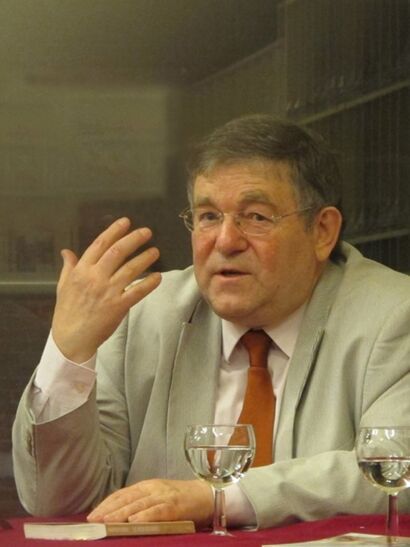Manfred Flügge
LiteratureManfred Flügge (1946–2025) was a distinguished German writer, translator, and literary scholar whose work bridged cultures, genres, and generations. Born on March 3, 1946, in Kolding, Denmark, to a family of East Prussian refugees, he grew up in Germany’s Ruhr region and studied Romance languages and history at the universities of Münster and Lille. He earned his doctorate in 1974 at Münster and went on to teach as a lecturer and later assistant professor at the Free University of Berlin, where he completed his habilitation in 1981.
In 1990, Flügge turned to a career as an independent author, translator, and editor, dividing his time between Berlin and Paris. His prolific body of work includes novels, short stories, biographies, plays, radio dramas, essays, and reviews, many of which appeared in leading German newspapers and radio features. Among his most acclaimed books are The Four Lives of Marta Feuchtwanger, The Century of the Manns, City Without a Soul: Vienna 1938, The Fleeting Paradise: German Writers in Exile on the Côte d’Azur, Heinrich Mann: A Biography, and Muse of Exile: The Life of the Painter Eva Herrmann. Flügge was also a noted translator from French and an editor of literary and historical texts.
His nuanced explorations of German-French cultural relations earned him numerous honors, including the Alfred Döblin Fellowship, the Hommage à la France Literary Prize, the Prix Jean Monnet du Dialogue Européen, and residencies at Villa Aurora in Los Angeles, the Stuttgart Writers’ House, and Villa Départementale Marguerite Yourcenar in France. He became a member of the German PEN Center in 1999.
Flügge’s writing was marked by empathy, meticulous research, and a deep commitment to illuminating the lives of historical figures and the complexities of exile, memory, and identity. He died in Berlin on March 30, 2025, at the age of 79. His work endures as a bridge between times, cultures, and generations.





